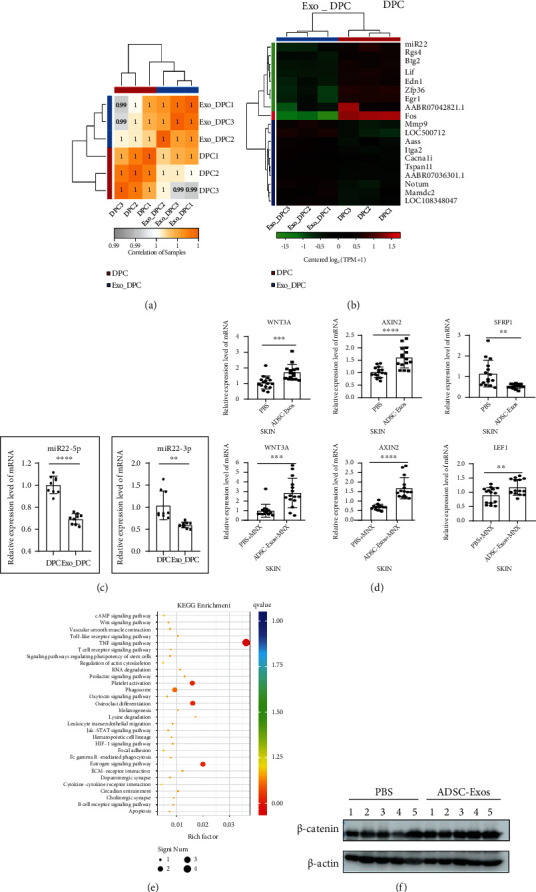Figure 6.

ADSC-Exos downregulated miR-22 and activated the Wnt/β-catenin signaling pathway, acting as potential anti-inflammatory agents. (a) Heatmap of the intersample correlation analysis showed high correlations between groups. (b) Heatmap displaying differentially expressed miR-22 in DPCs treated with ADSC-Exos (Exo_DPC) or not (DPC) by RNA-seq analysis. (c) qRT-PCR results indicated that miR-22 (miR-22-5p and miR-22-3p) levels in DPCs were downregulated after ADSC-Exos treatment. (d) Relative mRNA levels of the β-catenin pathway-related genes in mouse skin were detected by qRT-PCR. Compared to the control group, WNT3A and AXIN2 were upregulated in the ADSC-Exos group and ADSC-Exos+MNX group. SFRP1 was downregulated in the ADSC-Exos group, and LEF1 was upregulated in the ADSC-Exos+MNX group. (e) Significant differential gene KEGG pathway enrichment analysis revealed that the Wnt/β-catenin pathway and the TNF-α signaling pathway were prominently regulated after ADSC-Exos treatment. (f) Western blot analysis was used to examine the protein level of β-catenin in mouse skin in the PBS group and ADSC-Exos group. The bands represent the results from 5 mice (from 1 to 5) in each group, respectively.
